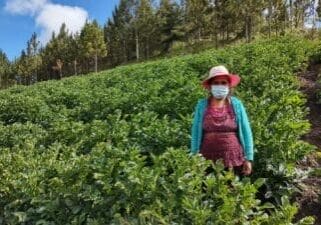News > Blog
How Village Savings & Loans Groups Saved $7,000 in Only Four Months
Published 03/31/2023 by Global Communities
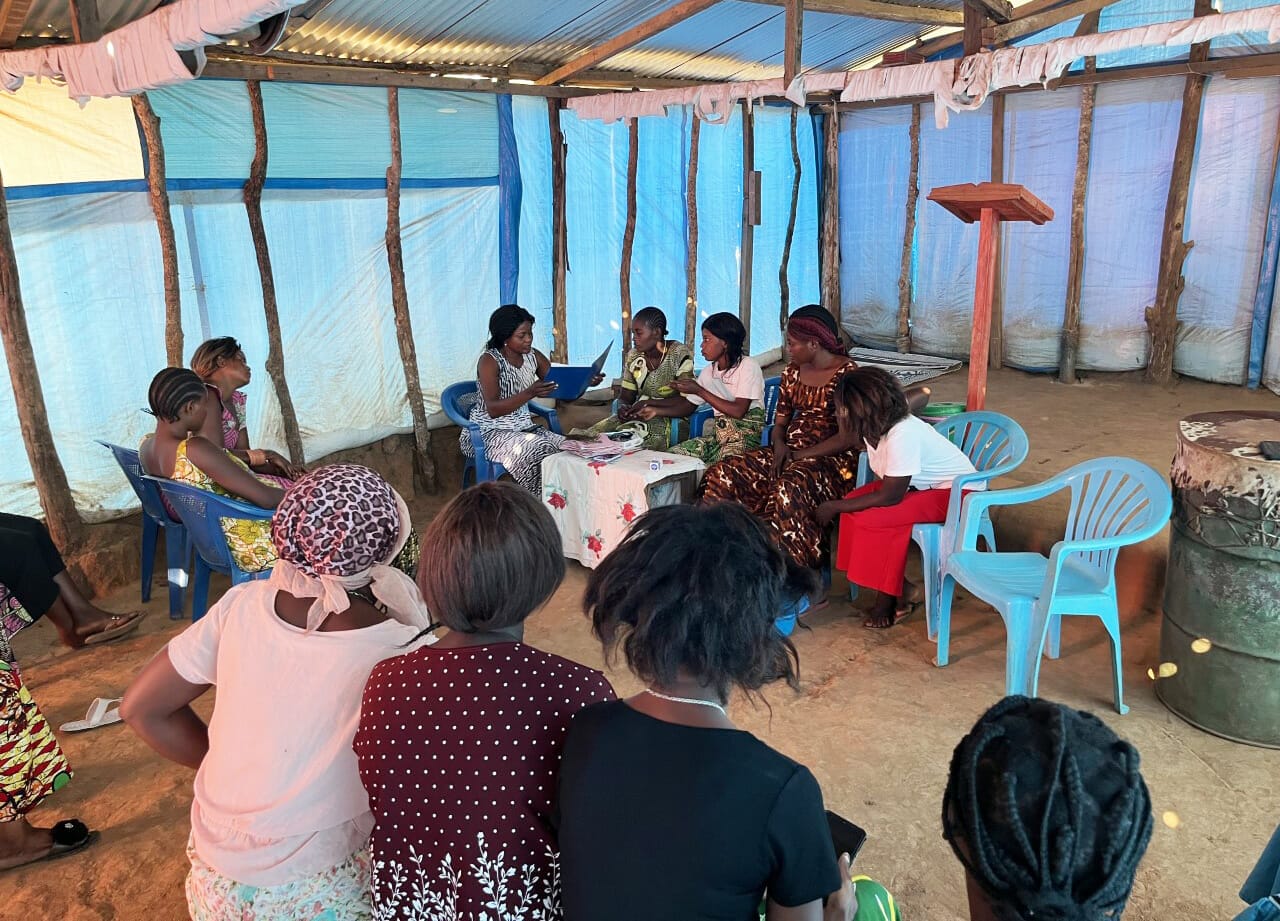
By David Mbulula
Garamba National Park lies in the Haut-Uélé province of the Democratic Republic of the Congo (DRC), along the border with South Sudan. Most of the region is very isolated, but African Parks (which manages Garamba) has improved security greatly over the past few years, both for the wildlife within the park and for the families living in the area. As a result, Garamba has been able to start supporting development activities among the surrounding communities.
Just to the south of Garamba, Kibali Gold Mine has hugely transformed the area and resulted in a massive influx of people, with the nearest town’s population increasing from around 30,000 to over 500,000 in less than 10 years. While the development of the mine has created great opportunities in the area, local people risk not being able to benefit from this economic growth without further training and technical assistance to obtain formal employment or start their own enterprises.
With funding from the United States Agency for International Development, Global Communities is working in partnership with Adam Smith International and African Parks to implement the Alliance for the Protection of Biodiversity and Development (APBD). The five-year project, which began in 2022, aims to conserve biodiverse ecosystems and improve the well-being and prosperity of the communities that depend on them around the Garamba National Park in the Haut-Uélé province of DRC.
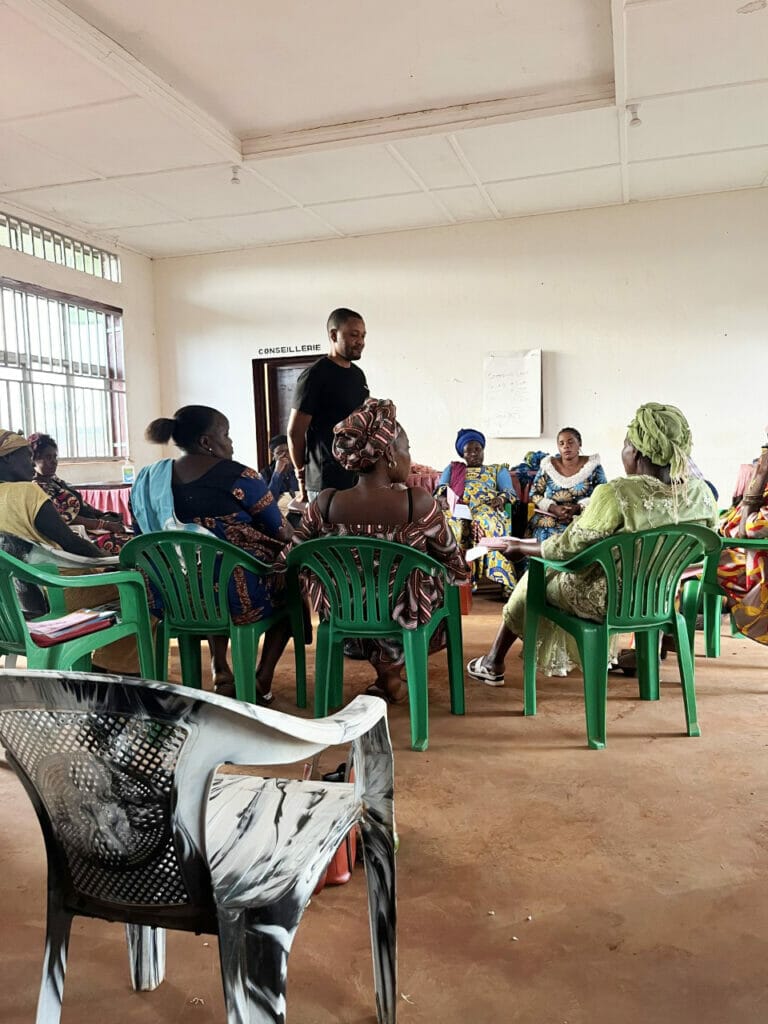
Photo by Global Communities
To achieve these outcomes, Global Communities oversees activities that are working to increase access to skilled jobs, entrepreneurship opportunities and finance in the province through trainings and strategic partnerships.
Between October and December 2022, the APBD launched a series of trainings on Village Savings and Loans Associations (VSLAs) for 10 groups consisting of 220 people from the Watsa and Durba communities, of which 97% were women. VSLA groups offer participants a safe and structured way to save money, grow their income and take out small loans to overcome social and financial barriers. The groups from Watsa and Durba, who had little to no understanding of savings prior to the trainings, saved $3,000 by the end of the pilot and a total of $7,000 over four months.
This achievement is significant when considering these group members mainly used their income to address immediate household needs in the past. With the concept of group savings and issuing group credit being relatively new to the region, the accumulation of savings week after week offered members an opportunity to borrow larger sums of money than they would have been able to prior to learning about the VSLA approach.
“The training and group had a positive impact on my life,” said Madrileyo Julienne, a 22-year-old woman with no formal education who learned how to earn an income and invest thanks to the interventions by APBD. “I was able to buy a sewing machine with VSLA funds and can now also buy fabric on credit to make ready-to-wear clothes for sale, meet my monthly VSLA contributions and sell manioc flour.”
To date, the 10 pilot VSLA groups have issued an estimated $5,500 in loans to their members and primarily invested in individual micro-businesses, many of which are led by women. This initiative has provided women like Clementine Kavira with the financial literacy and resources to build their businesses and improve their livelihoods, further contributing to the region’s sustainable development.
Clementine, 48, shared that she was able to build a savings fund and obtain credit from her VSLA group to invest in her small rice warehouse. As a result, she has been able to reach her savings goals and contribute regularly to her group.
“Having objectives to reach, such as meeting my contribution and occasionally paying off my loans, definitely keeps me motivated. Without that, I would have already given up.”
Clementine, VSLA group member
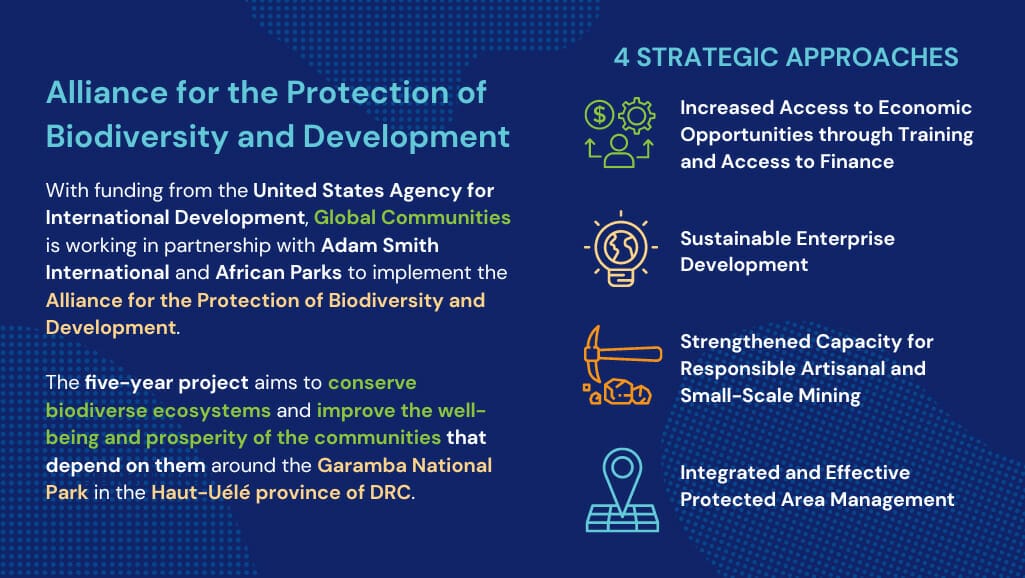
Miriam Sikina, 28, is a housewife who credits the APBD with opening up opportunities for her that are not typically available to women in her community.
“We are vulnerable and have fewer sources of financial income, but by being part of an VSLA group, I learned how to have and also put aside money,” she said, noting that she has started breeding and selling sheep and pigs. “Now, I can support my family and also contribute to the household.”
The APBD’s VSLA intervention was brought to life to help more people gain access to financial services and to encourage women entrepreneurs and small businesses to build strong foundations and find alternative ways to make a living that are better for the environment. The success of the project has been transformative for the communities involved, especially for women, and the APBD is committed to scaling up this work and training a total of 2,000 VSLA members by 2027.
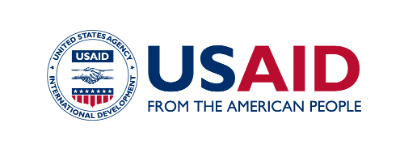
This success story is made possible by the generous support of the American people through the United States Agency for International Development (USAID). The contents are the responsibility of Global Communities and do not necessarily reflect the views of USAID or the United States Government.






